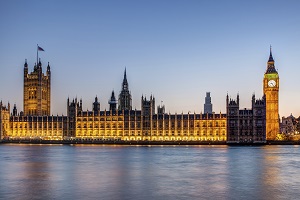All-time price high poses election challenge

– Number of new sellers down 4% so far in 2015 compared to 2014
– March busiest ever month on Rightmove, up almost 20% year-on-year to 115 million
The price of property coming to market has hit a new all-time high this month. The average new seller asking price has increased by 1.6% (+£4,381) to a new record of £286,133, surpassing the previous high set back in June 2014 by £4,351 (+1.5%). The property shortage experienced in many parts of the country has been exacerbated by a 2015 slump in the number of properties being put up for sale and by increased demand, with record spring search activity on Rightmove. With Rightmove reporting its highest ever asking price and the election less than four weeks away, policies to ensure more homes are made available will be key as housing becomes an important election topic.
Miles Shipside, Rightmove director and housing market analyst comments:
“Record high housing demand and an under-supply of homes have delivered a new all-time high in the price of property coming to market in the month before the election. The high cost of housing is a big concern for many home-hunters, so the contents of the respective party manifestos and well thought-out sustainable solutions to the lack of affordable housing supply will be high on many voters’ agendas too. While the annual rate of price increases may be dropping back, down from 5.4% last month to 4.7% this month, it’s of little comfort to buyers as even more modest increases stretch buyers’ finances into new territory with prices at record average highs. Furthermore, the rapid fall in general inflation means that the inflation-adjusted rate of house price growth remains high.”
While the recovering housing market saw an 11% increase in new seller numbers from January to April 2014 compared to the same period in 2013, so far this year’s newly marketed property numbers have slumped and are down by 4% compared with 2014. Conversely, housing demand continues to burgeon, with Rightmove recording its busiest ever month in March. Website visits were up almost 20% year-on-year, to over 115 million.
Shipside observes:
“Failure to meet house-building targets since the eighties, nineties and noughties to match forecast housing demand has been a major factor in upwards price pressure both in the property sales and private rented sectors. In spite of the distractions and uncertainty surrounding the upcoming election, demand for the right roof over your head seems unchecked. If you’re setting up home, moving jobs or your kids need to be in a new school, your personal housing agenda is perhaps higher than the bigger-picture political one. However, while demand is at record levels, there is less fresh property choice to buy this year as fewer home-owners are coming to market. Hesitation to sell and the use of property as a long-term investment are factors in this month’s new price record, and as we approach the election the highest ever cost of housing sets an interesting challenge for political leaders.”
The challenge is greatest in the south of the country (Greater London, south east, east of England and the south west), where the average price of property coming to market is up by £84,874 (+27.5%) since the last election in May 2010. The high demand for homes in London and severe shortage of new supply fuel a large proportion of this increase, with a £195,420 (+49.0%) price rise in the capital in the last five years. The favoured commuter-belt south east region has also seen knock-on affordability issues with new seller asking prices up by £62,105 (+20.0%). In contrast the north of the country has seen prices rise by an average of just £6,374 (+3.7%), falling behind the rate of inflation, though this overall average obviously masks many areas that have seen substantial increases and subsequent severely strained affordability.
Shipside adds:
“With low wage inflation, the increasing cost of housing is another burden for many. The problem is especially acute in the south, particularly those areas influenced by the high demand for housing within reach of the capital.”


